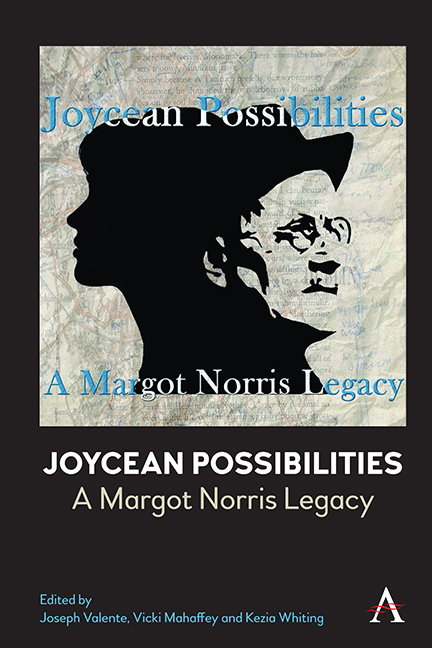9 - Ephemeral Spectacles: Art, Political Theater, Ulysses
Published online by Cambridge University Press: 20 April 2024
Summary
The “Messianic scene” of the “Circe” episode of Ulysses both critiques and parodies religious and political spectacles in Ireland deriving from the urban festivals and processions that flourished throughout monarchical and imperial Europe. The torchlight procession and Bloom's investiture as “undoubted emperor-president and king-chairman, the most serene and potent and very puissant ruler of this realm,” Leopold the First (U 15.1471–73), are in apostolic succession to these urban spectacles of pomp and circumstance staged to legitimize the power of political rule. This Circean burlesque re-inscribes the streets of subaltern Dublin and thereby also recalls the resistance to imperial politics and the reclamation of public space enacted by nationalist counterspectacles, questioning their own claim to historical truth and exploring the power relations that undergird the dialectic of history and memory. Such a re-inscription critiques both utopian and dystopian sociopolitical visions of colonial Ireland. In staging a performative resistance to structures of power, this re-inscription posits and yet also critiques the subversive, even revolutionary, function of an avant-garde or modernist experimental art in a colonial state; and it questions the possibility for such an art to launch a system-immanent critique of itself under subaltern conditions. Margot Norris notes that historically Joyce is situated “at the precise moment when the avant-garde's self-critique was made possible by its confrontation with aestheticism's disavowal of art's social origin.” As such, Joyce's own avantgardism is located in “a dramatic and dynamic textual performativity whose end is not autotelic […] but political.” The Joycean text is “the staging of a cultural phenomenon,” she argues: “as an artist of (and, as Irishman, prostituted to) the dominant culture,” his art is “literally inscribed in the textualization of Ireland's political and economic life.” In demonstrating “art's resistance to, and suppression by, civic and commercial systems responsive to a hegemonic order,” Joyce thereby recovers its “implied violence.”
Throughout Europe, how religious, funereal and, especially, political processions moved circuitously through the streets of a city, and how a city served as stage set for these theatrical ceremonies, demonstrated how urban space could serve as vehicle for messages of power.
- Type
- Chapter
- Information
- Joycean PossibilitiesA Margot Norris Legacy, pp. 123 - 140Publisher: Anthem PressPrint publication year: 2022



